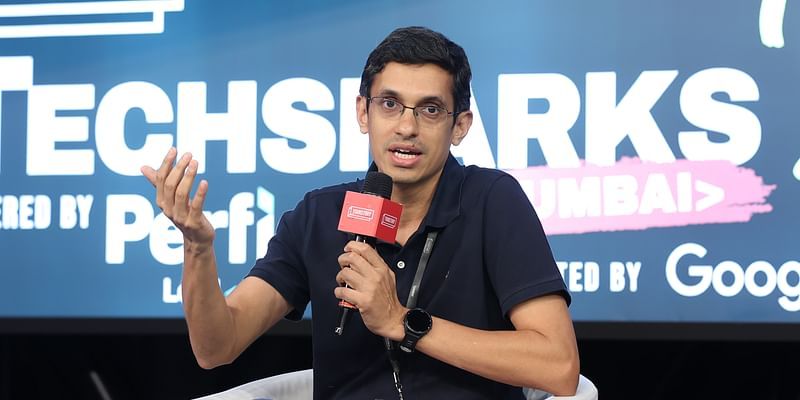Mayank Kumar, an education leader and co-founder of upGrad, and Ayush Mathur, an early team member at hospitality and travel-tech firm OYO, have come together as co-founders to launch BorderPlus, a talent mobility platform connecting blue-collar workers to global opportunities.
The duo are reuniting after more than a decade since their time at the Parthenon Group, as they aim to bridge workforce gaps while focusing on equitable access for workers from emerging markets like India.
“India doesn’t have an abundance of natural resources… People are our greatest resource. To build something meaningful and big, India must capitalise on its demographic dividend. IT services are a prime example where we have developed an exceptional service line—addressing global needs. Given our demographic dynamics, I believe India is poised to become the world’s largest supplier of talent to the global economy,” Kumar tells YourStory.
BorderPlus will initially focus on the healthcare sector in Germany, with plans to expand into other areas such as hospitality, retail, teaching, construction/logistics, and trucking, as well as explore additional geographies in the future.
Mathur, who had more than a decade-long journey at OYO and last served as the President of OYO Europe, shares that a significant portion of OYO’s European business is in Denmark and Germany, where he has noticed a shortage of people willing to do housekeeping.
“When you visit these hotels, you will often see limited staff at the reception or among other hotel employees. There’s a noticeable gap—or rather, an opportunity—for someone to step in and fill these roles,” he said.
Mathur recalls a personal experience with the national health service (NHS) when his daughter swallowed a piece of plastic and had to wait four hours due to higher-priority cases ahead of them. He contrasts this with India, where in an emergency, help would have arrived much sooner.
“There is huge potential for sure. I believe India culturally fits in well if we approach this the right way. We have the resources to provide these skills globally. If we can skill people properly, or ‘finish’ their training, we can deploy them in the right geographies and skill categories,” notes Mathur.
“If you send a nurse or even a driver from here to an international location, I can tell you that in 50-60% of cases, their life—and the lives of future generations—changes through the experiences, exposure, and earnings they gain, significantly uplifting their families’ lifestyles,” he adds.
Opportunities and challenges
According to the co-founders, the first pilot batch of about 10 candidates has started. The startup plans to launch multiple batches every month across various regions, aiming for 20-30 candidates per batch. Initially, it will run batches once a month, but it aims to scale up to weekly batches.
The programmes last 6-9 months and can be done offline, blended, or online, with the final month or two conducted offline for effective language learning. The first training location is in Pune, followed by Mumbai, and additional locations will be set up across the country for last-mile training, as per Kumar.
The startup is developing an AI-led conversational bot, built on OpenAI architecture, for language practice through back-and-forth spoken interactions.
Kumar highlights that the programmes will be priced at Rs 2 lakh, but the full amount will be reimbursed to candidates as a scholarship or relocation assistance once they arrive in Germany.
“We make money, potentially, once a recruiter hires them. It’s a more enterprise-driven revenue stream rather than a consumer-driven one,” he adds.
The company’s focus is on a finishing school that prepares candidates with a programme comprising 70% language training, 20% cultural preparation, and 10% skills development. Kumar points out that India’s education system, especially in areas like healthcare and nursing, already provides strong skill training, such as the BSc Nursing programme.
According to Kumar, the main challenges include training 20-23-year-olds in a foreign language, particularly German, at an age when language learning is difficult. Another challenge is competing with unorganised players who operate outside the rules, complicating the maintenance of industry standards. Additionally, there is the task of building credibility for a strong Indian brand internationally, particularly in the German and European markets, where recruiters and corporates may be unfamiliar with the brand.
Mathur believes trust is a major concern due to the reputation of unregulated routes, with hospitals seeking transparent and trustworthy recruitment processes. By offering a technology-driven, transparent solution, this gap in trust can be bridged, which is crucial for scaling in the industry and collaboration with organisations in Europe and the UK.
“Ayush’s presence is a key factor in our strategy; we will focus on creating direct partnerships, and if good opportunities for acquisitions arise, we will consider M&A,” says Kumar.
M&As will be considered to establish a stronger presence in international markets, and when the need arises, “we will fund it ourselves”, adds Kumar.
“This time around, equity is very precious, so we want to limit dilution. Starting a second time gives you the hindsight to understand that at least. Don’t rush it; do it slowly and build it well,” he elaborates.
Kumar says that the startup will require a commitment of about Rs 100 crore, which is essential for the business. He believes they can find ways to either fund it themselves or collaborate with partners to secure the necessary resources.
Business potential
After six months in the healthcare space, the company plans to explore new geographies beyond Germany and expand into areas outside of healthcare.
Kumar explains there are six skill areas and seven regions: the US, UK, ANZ, Canada, Europe 1, Europe 2, and Japan, South Korea, the Far East, and the Middle East, resulting in 42 combinations.
Each market is expected to move around 3,000 to 4,000 candidates, and if the company scales this across all markets, it will result in about 150,000 people moving annually, with each individual generating $3,000 to $4,000 in revenue, he says.
He clarifies that the company will not earn money directly from individuals but from corporate clients who will pay for the service.
This would result in approximately half a billion dollars in revenue, translating to an EBITDA pool of $100 million to $150 million, with an average margin of 25%, according to him.
The startup also plans to expand beyond recruitment and into staffing.
If the startup has 100,000 people on its payroll, each earning $20,000 to $30,000 annually, this would create a revenue scale of $2 billion, and with an 8% to 10% margin, the EBITDA pool would range from $200 million to $300 million, explains Kumar.
“If executed correctly, there’s the potential to generate an EBITDA pool of $300 million to $400 million. Achieving this would make it realistic to value the company at $10 to $15 billion,” he adds.
Team
The founding team includes Kevin Shah leading demand, Praniti Lal and Radnyee Naik looking at the language expertise, and Subhendu Chandra heading supply. While Kumar is based in India, Mathur is based in the UK.
“My area of competence is in education, skilling, and people and talent. I felt it was a good match with what he (Mathur) brings to the table, especially since a large part of his business dealings involved having strong connections in the European, US, and global markets,” Kumar says.
“The complementary skill sets help us balance and support each other on various fronts,” he adds.
Kumar, who stepped down from his operational role as managing director at upGrad late last year, will remain involved in the edtech company’s strategic decisions while working on this new venture.










